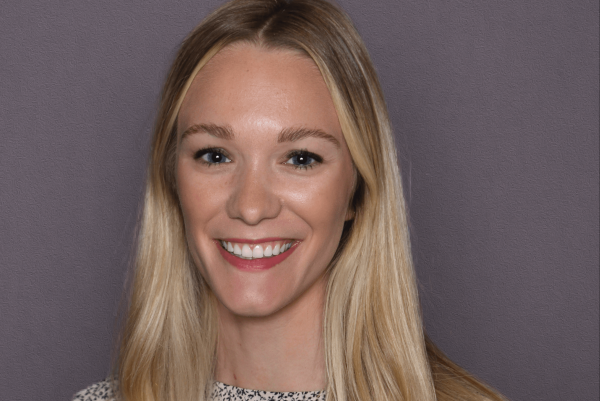April 7, 2020
 Ph.D. student Jordan Baer Joiner was selected for the competitive National Science Foundation Graduate Research Fellowship Program, which will support her two research projects that apply different technologies to help treat pancreatic cancer.
Ph.D. student Jordan Baer Joiner was selected for the competitive National Science Foundation Graduate Research Fellowship Program, which will support her two research projects that apply different technologies to help treat pancreatic cancer.
Joiner earned her undergraduate degree at the University of Alabama and worked as an engineer in the pharmaceutical industry before graduate school. She said as a first-generation college student, she didn’t always see a Ph.D. program in future, but ultimately her mentors motivated her to apply.
Now a second-year student in the UNC Eshelman School of Pharmacy’s Division of Pharmacoengineering and Molecular Therapeutics, Joiner focuses on the intersection of engineering and drug delivery methods. She said she’s grateful to have two advisors for her graduate research: Paul Dayton, Ph.D., and Rahima Benhabbour, Ph.D.
“I’m really thankful to have two Ph.D. mentors, which I feel is a little bit non-traditional for a graduate student,” she said. “…I started out in one lab, and then I basically found out how we’re working with another lab. I applied for a grant through NC TraCS (NC Translational and Clinical Sciences Institute) to basically combine the two technologies.”
“It has been an absolute delight working with Jordan over the past year,” Behabbour said. “From day one, she has demonstrated not only a strong drive for great accomplishments but also an incredible ability to seek opportunities and work very hard to pursue them. I very much look forward to seeing her grow and succeed throughout her doctorate time here at the UNC Eshelman School of Pharmacy.”
Joiner’s research in the Dayton lab focuses on activating an immune response to cancers through therapeutic ultrasound. In the Benhabbour lab, she is working on making injectable implants that treat cancers by releasing drugs over time. She said she hopes to eventually combine the implant and ultrasound technologies for pancreatic cancer treatment.
Joiner was one of 2,000 recipients for Graduate Research Fellowship Program funding out of about 12,000 applicants. The fellowship is available for both senior undergraduates and graduate students in their first two years of study. She will be awarded a $34,000 annual stipend for three years along with a $12,000 allowance for educational costs. Fellows also have access to unique research partnerships around the world.
“It was much-needed good news in the middle of this uncertain time,” she said. “I am also in the middle of writing for my qualifying exams, so it forced me to take a breath of fresh air and realize my capabilities as a researcher.”
Latest News

Dean Angela Kashuba receives Carolina Alumni Faculty Service Award

RASP poster presentations capture student research


